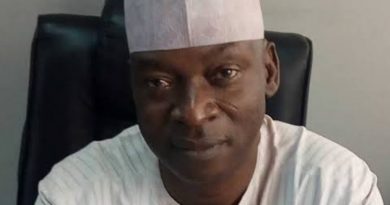Education Excellence: Unveiling the Top 10 Nigerian States with the best Education system in 2023
By Chila Andrew Aondofa
Education is the bedrock of any society, and in Nigeria, it is no different. Over the years, there has been a lot of debate about the quality of education in Nigeria, with some people claiming that it is lacking in several areas. However, there are states in Nigeria that have taken the lead in education and are setting the standard for the rest of the country.
In this post, we will unveil the Top 10 Nigerian States with the best Education system in 2023. We will explore the different educational policies that have been implemented in these states and how they are impacting education in Nigeria.
From infrastructure development to teacher training and curriculum improvement, these states are making significant strides towards providing quality education for all. So, if you’re curious to know which states are making the most progress in education, keep reading!
The importance of education excellence in Nigeria
Education is a vital pillar of any nation’s development, and Nigeria is no exception. With a population of over 216.7 million people, Nigeria faces the critical task of providing quality education to its citizens. Education excellence is not just about achieving high literacy rates but also ensuring that the education system equips individuals with the necessary skills and knowledge for personal growth and national progress.
In recent years, Nigeria has made significant strides in advancing its education sector. The government, along with various stakeholders, has implemented reforms, policies, and initiatives aimed at improving the quality of education across the country. These efforts are crucial for fostering a knowledge-based society and empowering Nigerian youth to become agents of change.
Quality education has a profound impact on various aspects of a nation’s development. It enhances economic growth by producing a skilled workforce that can contribute to innovation, entrepreneurship, and productivity. Education also plays a pivotal role in promoting social cohesion, reducing inequality, and eradicating poverty.
Furthermore, education excellence enables individuals to expand their horizons, pursue their passions, and fulfill their potential. It equips them with critical thinking skills, problem-solving abilities, and the capacity to adapt to a rapidly changing world. By nurturing a culture of learning and intellectual curiosity, education becomes a catalyst for personal and societal transformation.
Recognizing the significance of education excellence, it is essential to identify the Nigerian states that are leading the way in this endeavor. These states serve as inspiring examples, showcasing innovative approaches, best practices, and successful outcomes in the education sector. By understanding their strategies, we can learn valuable lessons and replicate their success in other regions, thus fostering a nationwide culture of education excellence.
In this blog post series, we will delve into the Top 10 Nigerian States with the best Education system in 2023. From advancements in infrastructure and technology integration to teacher training and curriculum development, we will explore the initiatives and achievements that have propelled these states to the forefront of educational leadership.
Stay tuned as we embark on this journey to uncover the exemplary efforts and remarkable progress made by these states in shaping Nigeria’s education landscape. Together, let us celebrate and learn from the successes of these education trailblazers, while also addressing the challenges that lie ahead in our collective pursuit of education excellence for all Nigerians.
Methodology: How the rankings were determined
Determining the Top 10 Nigerian States with the best Education system in 2023 required a comprehensive and rigorous methodology. Our aim was to provide an objective and data-driven analysis that showcases the states at the forefront of educational development in Nigeria.
To accomplish this, we considered several key factors that contribute to educational excellence. These factors were carefully selected to provide a holistic view of the education landscape in each state. Our methodology included:
- ACADEMIC PERFORMANCE: We analyzed the performance of students in national examinations such as the West African Senior School Certificate Examination (WASSCE) and the National Common Entrance Examination (NCEE). States with consistently high pass rates and exceptional performance were given higher rankings.
- INFRASTRUCTURE: Adequate infrastructure is crucial for providing a conducive learning environment. We evaluated the availability and quality of educational facilities, including classrooms, libraries, laboratories, and ICT infrastructure. States with well-equipped and modernized facilities were given greater recognition.
- TEACHER QUALITY: The quality of teachers plays a significant role in shaping the educational experience of students. We assessed the qualifications, experience, and professional development opportunities available to teachers in each state. States with well-trained and highly qualified teachers received higher scores.
- ACCESS TO EDUCATION: Ensuring access to education for all is a critical aspect of education excellence. We examined factors such as enrollment rates, gender parity, and efforts to reduce out-of-school children. States with inclusive and accessible education systems were ranked higher.
- INNOVATION AND TECHNOLOGY INTEGRATION: The integration of technology and innovative teaching methods can greatly enhance the learning experience. We considered the adoption of digital learning tools, e-learning platforms, and innovative educational programs. States at the forefront of technological advancements in education were given due recognition.
- GOVERNMENT INVESTMENT: The commitment and investment of state governments in education were also taken into account. We analyzed budget allocations, policies, and initiatives aimed at improving the education sector. States that demonstrated a strong commitment to education were rewarded with higher rankings.
By employing this methodology, we aimed to provide an objective assessment of the Top 10 Nigerian States with the best Education system in 2023. It is important to note that this ranking is a snapshot of the current educational landscape and may evolve over time as states continue to invest in educational development.
Top 10 Nigerian States with the best Education system in 2023
When it comes to education excellence in Nigeria, there are certain states that have consistently stood out and set the bar high. These states have made significant strides in improving the quality of education and have become beacons of inspiration for others to follow.
- 1. LAGOS: As the economic hub of Nigeria, Lagos has not only invested heavily in infrastructure but also in education. The state boasts some of the best schools, universities, and educational institutions in the country.
- 2. RIVERS: With a strong focus on education, Rivers state has made remarkable progress in providing quality learning opportunities for its residents. The state has implemented various initiatives and programs to enhance the education system.
- 3. DELTA: Delta state has emerged as a leader in education excellence, with a commitment to providing quality education for all. The state government has implemented policies that promote access to education and improve the overall learning experience.
- 4. OGUN: Ogun state has made significant strides in education, with a strong emphasis on technical and vocational training. The state has established specialized institutions that provide practical skills and empower students for employment opportunities.
- 5. EDO: Edo state has shown great dedication to education, with a focus on enhancing the quality of teaching and learning. The state government has invested in teacher training programs and infrastructure development to create an enabling environment for education.
- 6. ENUGU: Enugu state has made remarkable progress in education, with a strong commitment to improving access and quality. The state has implemented innovative policies and initiatives to promote inclusive education and ensure every child has the opportunity to learn.
- 7. ANAMBRA: Anambra state has consistently ranked among the top states in education performance. The state’s commitment to providing quality education is evident through the establishment of well-equipped schools and investment in teacher training.
- 8. OYO: Oyo state has made significant strides in education, with a focus on improving infrastructure and enhancing the learning environment. The state government has implemented policies to ensure access to quality education for all its residents.
- 9. AKWA IBOM: Akwa Ibom state has shown great dedication to education, with a focus on improving access and quality. The state government has invested in infrastructure development, teacher training, and scholarship programs to support students’ educational journey.
- 10. KADUNA: Kaduna state has made remarkable progress in education, with a focus on improving access and quality. The state government has implemented policies and programs that promote inclusive education and provide opportunities for all students to excel.
Overview of the Top 10 Nigerian States with the best Education system in 2023
These Top 10 Nigerian States with the best Education system in 2023 serve as shining examples for others to learn from and replicate their success. With their commitment and dedication, they are paving the way for a brighter future for Nigerian education.
1. Lagos: Overview of educational initiatives and achievements
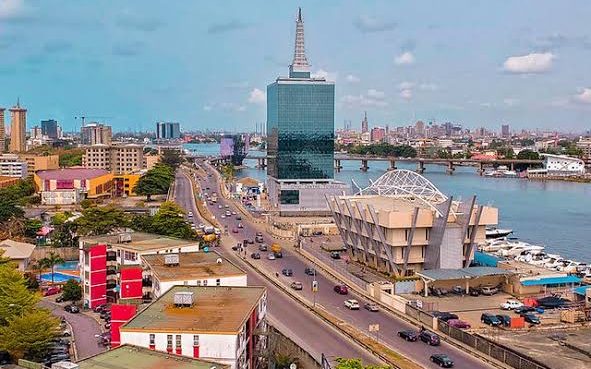
In our quest to unveil the top Top 10 Nigerian States with the best Education system in 2023, we begin with lagos. This state has made significant strides in fostering a conducive and inclusive learning environment for its residents. In 2022, the state allocated the lion’s share of N171.6 billion to education and currently it has taken the third largest share of the budget.
One of the key initiatives implemented by lagos state is the establishment of modern educational infrastructure. Through strategic investments, over 1,000+ new classrooms have been added to public schools, and completed over 1,097+ projects in schools ensuring that students have access to a high-quality learning environment.
This commitment to infrastructure development has not only improved the physical conditions of schools but has also enhanced the overall educational experience.
Lagos state has also prioritized teacher training, development and welfare to ensure that educators are equipped with the necessary skills, knowledge and morals to deliver quality education. They have trained teachers in modern teaching techniques through EKOEXCEL and handed over tablets to them for teaching.
At the 2022 World Teachers’ Day celebration, the state announced the approval of a pay raise for teachers. The Governor Sanwo-Olu also presented 13 teachers and administrators with brand-new SUVs and other prizes, rewarding them for excellence and diligence in teaching.
That was in addition to implementing new welfare packages for the teachers, further underscoring the state’s commitment to their wellbeing. By investing in their teachers, lagos state has created a supportive ecosystem that empowers educators to excel in their roles, ultimately benefiting students.
Furthermore, lagos state has through the EKOEXCEL programme, introduced technology in education, recognizing its potential to enhance learning outcomes. They have introduced digital programs and integrated technology into the curriculum, allowing students to engage with educational content in innovative ways. By embracing e-learning tools and resources, lagos state has expanded access to education and fostered a culture of digital literacy among its students.
In terms of achievements, Lagos State has witnessed a marked improvement in educational outcomes. Overall performance of Lagos students in WAEC has improved from 42 per cent to over 83 per cent. Graduation rates have increased, and students have shown significant progress in standardized testing, demonstrating their mastery of core subjects.
Additionally, lagos state has received recognition for its commitment to inclusive education, ensuring that all students, regardless of their background or abilities, have equal access to quality education.
Lagos’s dedication to educational initiatives and its remarkable achievements have positioned it as a frontrunner in education excellence. As we continue to explore the Top 10 Nigerian States with the best Education system in 2023, we look forward to uncovering more inspiring stories and practices that contribute to the advancement of education in Nigeria.
2. Rivers State: Notable improvements in education infrastructure
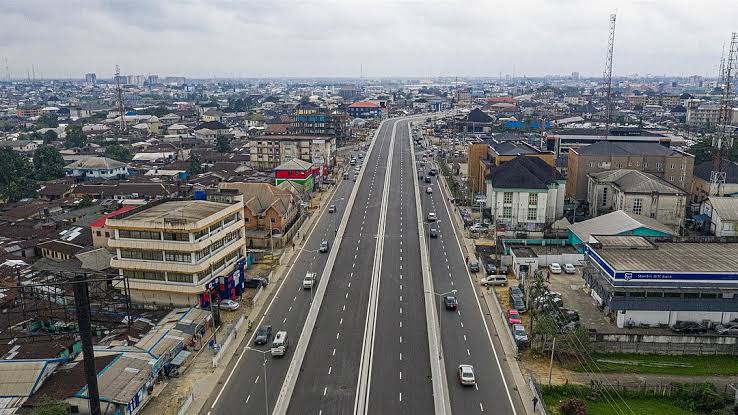
In our exploration of the Top 10 Nigerian States with the best Education system in 2023, we cannot overlook the remarkable advancements in education infrastructure witnessed in Rivers State. This state has taken significant strides in creating a conducive learning environment for its students.
One of the key areas of improvement in education infrastructure is the construction and renovation of school buildings. Rivers State has implemented a comprehensive plan to upgrade existing schools and build new ones with modern facilities. These new structures provide students with comfortable classrooms, well-equipped laboratories, and libraries that foster an atmosphere of learning and exploration.
Additionally, Rivers State has invested heavily in digital infrastructure. The integration of technology in education has become a priority, with schools being equipped with computer labs, high-speed internet connectivity, and interactive whiteboards. This investment in technology aims to enhance the quality of education, making it more engaging and interactive for students.
Furthermore, the state government has focused on improving school amenities such as playgrounds, sports facilities, and recreational areas. Recognizing the importance of extracurricular activities in holistic development, Rivers State has made efforts to provide students with opportunities to engage in sports and other recreational activities, thereby nurturing their physical and mental well-being.
Moreover, Rivers State has prioritized the training and development of teachers. Recognizing that teachers play a crucial role in shaping the educational landscape, the state government has implemented various teacher training programs. These programs aim to enhance the pedagogical skills of teachers, keeping them updated with the latest teaching methodologies and equipping them with the necessary tools to deliver quality education.
In conclusion, Rivers State has demonstrated a strong commitment to improving education infrastructure. Through the construction and renovation of school buildings, integration of technology, provision of school amenities, and focus on teacher training, the state has created an environment that promotes educational excellence.
These notable improvements serve as a testament to the state’s dedication to providing quality education to its students and positioning itself as a leader in Nigeria’s educational landscape.
3. Delta State: Innovative approaches to curriculum development

Delta State stands out as a pioneer in innovative approaches to curriculum development, setting a commendable example for other Nigerian states to follow. Recognizing the ever-evolving needs of students in the 21st century, this state has taken proactive measures to revamp its curriculum and align it with global standards.
One of the key initiatives undertaken by Delta State is the integration of technology into the teaching and learning process. By embracing digital tools and resources, students are equipped with the necessary skills to thrive in a digitally-driven world. Through partnerships with industry experts and technology companies, Delta State has ensured that its curriculum remains relevant and prepares students for the jobs of the future.
In addition, Delta State has made significant strides in incorporating vocational education into its curriculum. Recognizing the importance of practical skills and entrepreneurship, the state has introduced specialized vocational training programs that cater to diverse fields such as agriculture, fashion design, automotive engineering, and more.
By providing students with hands-on learning experiences and opportunities to explore their passions, Delta State is fostering a new generation of skilled professionals who are ready to contribute to the economic growth of the nation.
Furthermore, Delta State has placed great emphasis on promoting interdisciplinary learning. By breaking down the traditional silos between subjects, students are encouraged to make connections across disciplines and develop a holistic understanding of the world. This approach not only enhances their problem-solving abilities but also fosters creativity and innovation.
Delta State’s commitment to innovative curriculum development has garnered recognition and praise both within and outside the state. Education experts and stakeholders have applauded the state’s efforts in preparing students for a rapidly changing world. By continually evaluating and updating its curriculum, Delta State has positioned itself as a leading force in education excellence, setting a benchmark for other Nigerian states to aspire to in the coming years.
4. Ogun State: Successful implementation of educational policies
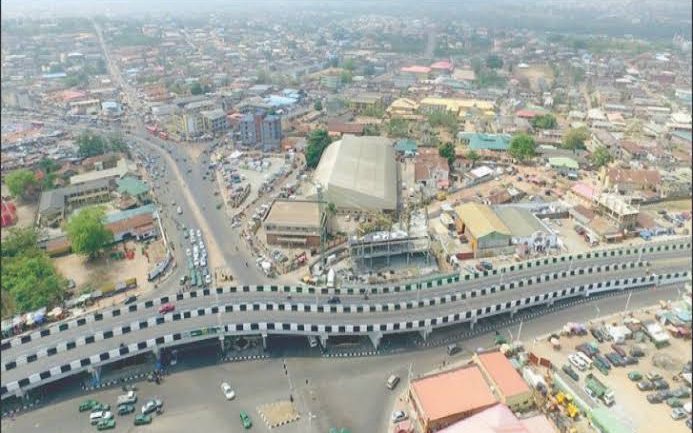
Ogun State has emerged as a shining example of successful implementation of educational policies in Nigeria. With a clear vision and commitment to improving the quality of education, this state has made significant strides in providing access to quality education for its residents.
One of the key factors contributing to the success of educational policies in Ogun State is the strong leadership and governance in the education sector. The state government has demonstrated a deep understanding of the importance of education and has prioritized it as a key developmental agenda. Through effective planning and resource allocation, they have been able to implement policies that have positively impacted the education system.
Another noteworthy aspect of Ogun State’s educational policies is their focus on inclusivity and equity. Recognizing the diverse needs of their population, the state has taken measures to ensure that every child has equal access to education. They have implemented programs to address gender disparities, promote inclusive classrooms, and provide support for students with special needs. This commitment to inclusivity has not only improved educational outcomes but has also fostered a sense of belonging and empowerment among students.
In addition, Ogun State has invested heavily in teacher training and professional development. Recognizing that teachers play a crucial role in shaping the future of education, the state government has provided opportunities for teachers to enhance their skills and knowledge. By equipping teachers with the necessary tools and resources, Ogun State has created an environment conducive to effective teaching and learning.
Furthermore, Ogun State has implemented innovative approaches to curriculum development and instructional methods. They have embraced technology in the classroom, integrating digital learning tools and resources to enhance the learning experience. This forward-thinking approach has not only made learning more engaging and interactive but has also equipped students with the digital skills necessary for the 21st-century workforce.
In conclusion, Ogun State’s successful implementation of educational policies has positioned it as a frontrunner in Nigeria’s education landscape. Through strong leadership, a commitment to inclusivity, investment in teacher training, and innovative approaches to learning, this state has set a high standard for educational excellence. As Nigeria looks towards 2024, it is clear that Ogun State will continue to lead the way in shaping the future of education in the country.
5. Edo State: Promoting inclusive education and reducing gender disparities
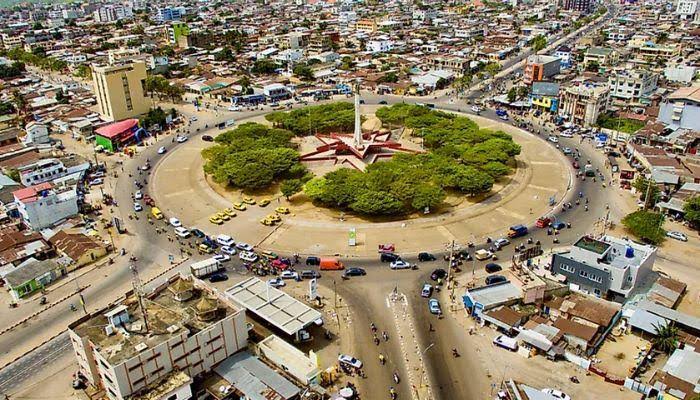
Edo State is making remarkable strides in promoting inclusive education and reducing gender disparities in Nigeria. Recognizing the importance of providing equal opportunities for all students, regardless of their gender or background, this state has implemented various initiatives to ensure that every child has access to quality education.
One of the key programs introduced by Edo State is the Edo State Basic Education Sector Transformation program (EdoBEST). Through this program, the educational system of the state has been transformed as over 600,000 pupils have so far benefited from it since its inception in 2018 and over 380,000 children are receiving relevant and next-generation aligned learnings which are made available to 1,289 basic education schools (primary and junior secondary schools) across 18 local government areas in the state.
Moreover, Edo State has taken significant measures to bridge the gender gap in education. Recognizing that girls often face obstacles in accessing education, the state government has implemented initiatives to encourage and support female students. These initiatives include providing scholarships, offering mentorship programs, and creating safe and conducive learning environments for girls.
In addition to these efforts, Edo State has also prioritized teacher training and development to enhance the quality of education. By investing in the professional development of educators, the state is ensuring that students receive instruction from well-trained and qualified teachers who can effectively address their individual learning needs.
Through these comprehensive measures, Edo State is paving the way for inclusive and equitable education. By promoting inclusivity and reducing gender disparities, this state is not only transforming the educational landscape but also empowering future generations to reach their full potential.
As we continue our journey to unveil the top 10 Nigerian states leading the way in education excellence, stay tuned to discover more about the remarkable initiatives and achievements of Edo State.
6. Enugu State: Effective teacher training and development programs
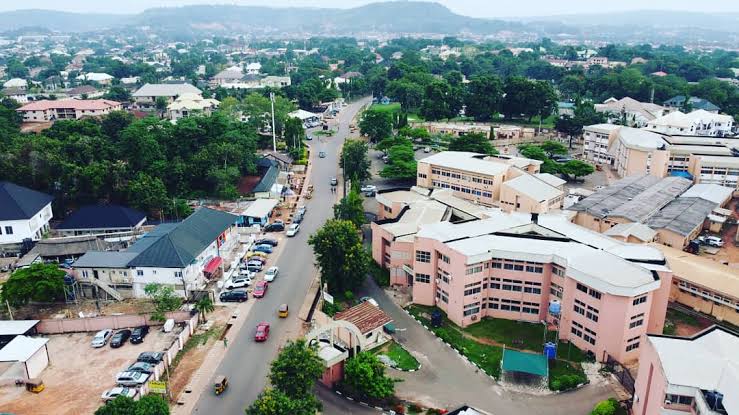
Enugu State as one of the Top 10 Nigerian States with the best Education system in 2023 is renowned for its effective teacher training and development programs. This state has recognized the pivotal role that teachers play in shaping the future of the nation and has implemented comprehensive initiatives to support and empower educators.
One of the key factors contributing to the success of education in the state is garrison of teachers. The state government has recruited more than 3500 teachers. Also recruited through the Post Primary Schools Management Board (PPSMB) were more than 1200 secondary teachers in addition to the 857 volunteer teachers (engaged during the past administration).
Teachers in this Enugu State are provided with regular opportunities for learning and growth, keeping them updated with the latest teaching methodologies, curriculum changes, and educational advancements. This commitment to ongoing training ensures that teachers are equipped with the necessary skills and knowledge to deliver quality education to their students.
Additionally, the state recognizes the importance of addressing the unique needs of individual teachers. They offer personalized development plans tailored to the specific areas of improvement for each teacher. This targeted approach allows educators to focus on enhancing their strengths while addressing any weaknesses, ultimately leading to a more effective teaching workforce.
Moreover, Enugu State actively encourages collaboration and knowledge sharing among teachers. They facilitate regular teacher workshops, conferences, and networking events where educators can exchange ideas, share best practices, and learn from one another. By creating a supportive and collaborative environment, this state promotes innovation and excellence in teaching.
The commitment of Enugu State to effective teacher training and development programs is evident in the remarkable achievements of its educational institutions. By investing in the growth and professionalization of its teaching workforce, they are ensuring that students receive the highest quality of education, setting a benchmark for other states to follow.
In conclusion, Enugu State is a shining example of how investing in effective teacher training and development programs can lead to educational excellence. The dedication to continuous learning, mentorship, personalized development, and collaboration has propelled this state to the forefront of educational innovation in Nigeria.
As we celebrate their achievements, it is crucial for other states to take inspiration and prioritize the professional growth and support of their teachers for the betterment of the entire education system.
7. Anambra State: Investing in technology and digital learning
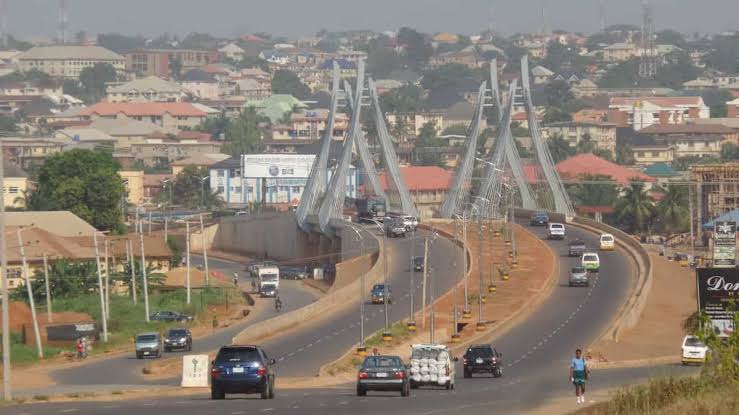
Anambra State is making remarkable strides in the field of education by investing in technology and digital learning. Recognizing the transformative power of technology in enhancing the learning experience, this state has taken proactive measures to integrate technology into its educational system.
By providing students with access to digital tools and resources, Anambra State is equipping them with the necessary skills to thrive in the digital age. The state government has collaborated with educational technology companies to implement innovative solutions that cater to the diverse needs of students.
The Anambra State government’s policy on education, which emphasized that “no child will be left behind” ensured that every physically challenged school child in Anambra state enjoys free tuition. On a broader scale, the government formulated a strategic objective to meet “the learning needs of all students through the equitable distribution of resources, learning of life-long skills and ensuring that Anambra state is among the top three states with the lowest literacy rate in Nigeria.
To this end, the state government recruited about 1,000 new teachers to strengthen both primary and secondary schools and built hostels with a capacity to shelter 700 students in twelve technical colleges. Italso supported public, private and mission schools in Anambra State, providing them yearly subvention to meet basic needs.
The government’s passion for skill acquisition and the vision to equip every school child with a skill as part of a scheme to prepare the children to compete effectively in the society, informed the formation of the ‘one student one skill’ policy. This policy became the driving force behind the revamping of technical schools in the state and ensured that ICT became a fundamental part of the school curriculum.
The state took ICT a step further by ensuring that Anambra teachers became ICT compliant. At a time, ICT compliance became a prerequisite for promotion of teachers. The state government also provided laptops for teachers in the state. In 2015, Governor Obiano sent 28 teachers to Singapore for further training in ICT and other critical areas to enhance their skills.
This has become a standard in Anambra State and has improved the quality of education in the State. The state government also instituted the policy that teachers in hard-to-reach areas will be given 20 percent of their salaries as incentives to encourage and ensure that students in such locations are not denied quality education. This policy has been in full implementation for over seven years and has encouraged teachers to give their best at all times.
The commitment of Anambra State to invest in technology and digital learning is a testament to its dedication to providing quality education to its residents. This forward-thinking approach is setting a positive example for other states in Nigeria and inspiring a nationwide shift towards education excellence in the digital era.
8. Oyo State: Engaging community involvement and parental support
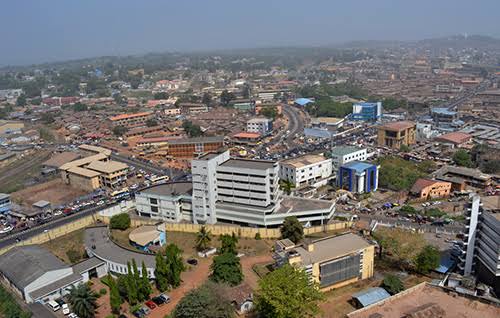
Oyo State has emerged as a frontrunner in education excellence by actively engaging community involvement and parental support. Recognizing the crucial role that parents and the wider community play in the educational journey of students, State 8 has implemented innovative strategies to foster collaboration and create a conducive learning environment.
One of the key initiatives undertaken by Oyo State is the Free 1,000 practicing questions per subjects in Primary and Secondary Education curriculum wherein 150,000 hits were recorded on www.oysgedu.ng 56% of visitors used e-library, 1,500,000 pupils/learners watched Basic Education Topics weekly on Jagaban TV, 47.6% of them used CBT questions.
Another is the Free 500MB Internet Data per student by Airtel for accessing www.oysgedu.ng – the Ministry platform for e-school, e-tests and e-learning. This innovation enhanced learning by downloading 1,296,899 files, 299,974 pages were visited while hits recorded on the platform were 249,419 per month on the average.
The Governor Seyi Makinde led administration’s achievements in education include the construction of 26 model schools, the construction of 200+ classrooms and office blocks, the renovation of 200+ classrooms, and the installation of 52 boreholes. In all, the Makinde administration completed over 500 projects in the education sector alone. These projects improved the learning atmosphere of the thousands of pupils/students in the Oyo State public and private school system.
Furthermore, Oyo State has address shortages in state-owned secondary schools, 5000+ teachers have been recruited by TESCOM in the past year, while hundreds non-teaching staff were converted to teaching staff (Education Officer) for public secondary schools by March 18, 2021. This has reduce the high rate of pupil/teacher ratio in the state..
The state has drastically Increase Access to Quality Education at Primary and Secondary Levels for all Eligible Oyo State Children by 10% Governor Seyi Makinde’s administration inherited 272,847 out-of-school children in Oyo State. His administration has been able to get 54,569 children (10,914 boys and 43,655 girls) back to school. This reduces the number of out of school children by 20%. All state-owned schools continue to operate the no fees and levies policy which his administration instituted when he assumed office in 2019.
The state has encourage private providers to provide quality and affordable education to Oyo State. The Ministry of Education, Science and Technology through inspections and re-inspections channelled her efforts towards quality education service delivery through:
- 35% reduction on the various fees paid by private schools to the government.
- Inspection and mentoring of private schools by the ministry.
- Distribution of compendium of past questions to students of private schools.
- Extension of intervention class to SS 3 students in private schools in preparation for WASSCE and NECO.
Oyo state serves as a shining example for other regions, highlighting the significant impact that community involvement and parental support can have on educational outcomes.
9.Akwa Ibom State: Encouraging vocational and skill-based education
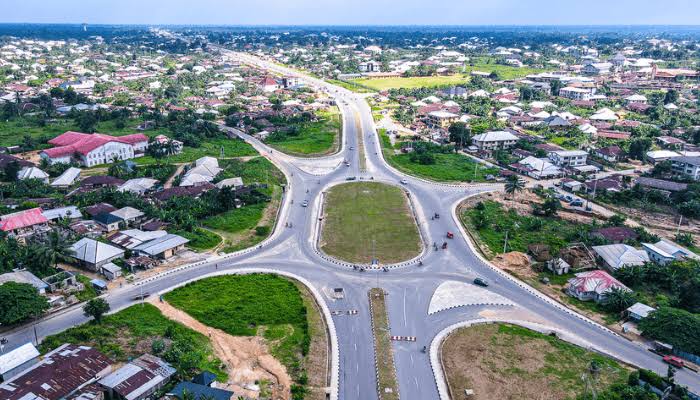
Akwa Ibom State is a shining example of the commitment to promoting vocational and skill-based education in Nigeria. Recognizing the importance of equipping students with practical skills that are highly sought after in the job market, this state has taken significant steps to integrate vocational training into its educational system.
With a forward-thinking approach, Akwa Ibom State has established specialized vocational schools and training centers that offer a wide range of courses tailored to meet the needs of various industries. Students have the opportunity to learn skills such as carpentry, plumbing, electrical work, automotive repair, and many other trades that are in high demand.
In addition to providing hands-on training, the government in its quest to also give students the best in their academic pursuance have recruited and trained hundreds of teachers in both primary and secondary schools. And in an effort at motivating their performances, has made their welfare a high priority. Akwa Ibom State teachers are one of the highest paid teachers in the country.
More so, the government has in the last seven years build several primary and secondary schools across the State. So many dilapidated school buildings were also renovated and rehabilitated. The aim of the government according to the governor is to give the pupils a conducive environment for optimal learning. This led to a sharp rise in performance by candidates who took the West African Senior School Certificate Examination from 2019 to 2021.
According to the former Commissioner for Education, Mrs Idongesit Etiebet, the percentage of candidates who passed with credits in 5 subjects or more, including -English Language and Mathematics rose from 58.55 to 68.05 and 78.90, for 2019, 2020 and 2021, respectively, and the figures has continued to raise since then. Report also showed that the total number of those who took the examination in the years under review as, 51,771, 52,207, 54,171 despite the effect of COVID-19.
The efforts of Akwa Ibom State in encouraging vocational and skill-based education serve as an inspiration to other states in Nigeria, highlighting the importance of embracing alternative educational pathways and providing students with a well-rounded education that prepares them for the realities of the job market.
10. Kaduna State: Promoting research and development in education
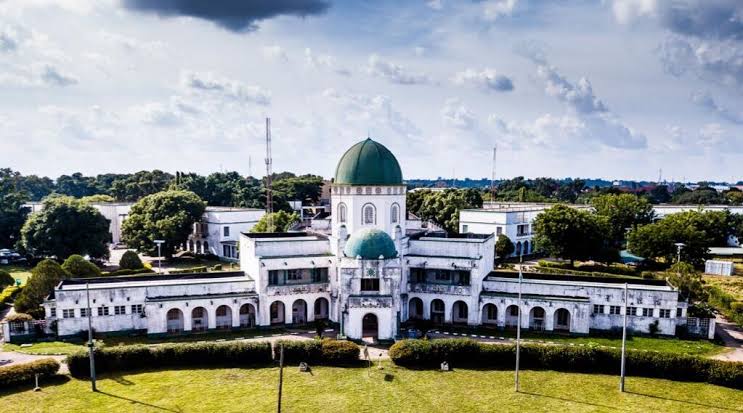
Kaduna State has emerged as a frontrunner in promoting research and development in education, solidifying its position as one of the Top 10 Nigerian States with the best Education system in 2023. With a keen focus on advancing educational practices through innovative research initiatives, this state has set itself apart from the rest.
Recognizing the importance of research as a catalyst for progress, the education authorities in Kaduna State have made significant investments in creating a conducive environment for scholars and researchers. They have established research centers and institutes that serve as hubs for groundbreaking studies in various fields of education.
These research centers not only provide state-of-the-art facilities but also attract renowned experts and scholars from across the country and beyond. Through collaboration with universities, industries, and international organizations, Kaduna State has fostered a culture of knowledge exchange and collaboration that fuels continuous improvement in the education sector.
Moreover, the state government has implemented policies that incentivize and support research activities in schools and colleges. Grants and funding opportunities are readily available to educational institutions, enabling them to undertake innovative projects and explore new teaching methodologies.
In addition to fostering research, Kaduna State has also embarked on a comprehensive education reform with the goal of revamping the moribund state of education. The state government sacked over 22,000 unqualified primary teachers. The government launched the School Feeding Programme, aimed at providing one free meal per day to 1.5 million pupils in public primary schools within the state.
It also abolished the collection of fees and levies in public primary and junior secondary schools in Kaduna, thereby removing a financial burden of N3 billion from the parents. Also, over 400 primary school blocks were renovated and furnished with desk and chairs while boreholes and functional toilets were constructed in schools.
As we look ahead to the future, it is evident that Kaduna State’s dedication to promoting research and development in education will continue to shape the landscape of Nigerian education. By investing in research, the state is not only equipping its students with the necessary knowledge and skills but is also paving the way for groundbreaking discoveries and innovations that have the potential to drive societal progress on a larger scale.
Challenges faced in achieving education excellence nationwide
Despite the commendable efforts made by various Nigerian states to achieve education excellence, there are several challenges that hinder progress on a nationwide scale. These challenges are multifaceted and require comprehensive solutions to ensure the holistic development of the education sector.
One of the primary challenges faced is inadequate funding. The education budget in Nigeria has often been insufficient to meet the growing needs of the sector. This leads to a shortage of resources, including textbooks, teaching materials, and infrastructure, which directly impacts the quality of education provided.
Another significant challenge is the lack of qualified and motivated teachers. Many schools struggle to attract and retain competent educators due to low salaries, limited opportunities for professional growth, and unfavorable working conditions. This affects the overall quality of instruction and hampers students’ learning outcomes.
Furthermore, there is a glaring disparity in access to education between urban and rural areas. Remote regions often lack well-equipped schools, qualified teachers, and educational resources. This geographical divide perpetuates educational inequality and limits opportunities for students in rural communities.
Additionally, the prevalence of societal issues such as poverty, child labor, and early marriages further exacerbates the challenges faced in achieving education excellence. These factors contribute to high dropout rates and hinder students’ ability to fully engage in the educational process.
Lastly, inadequate monitoring and evaluation mechanisms pose a challenge to ensuring accountability and quality in the education system. Without effective oversight, it becomes difficult to identify areas that require improvement and implement targeted interventions.
Addressing these challenges requires a multi-pronged approach involving increased investment in education, improved teacher training and welfare, bridging the urban-rural divide, tackling societal issues that affect access to education, and implementing robust monitoring and evaluation systems.
Only by collectively addressing these challenges can Nigeria make significant strides towards achieving education excellence nationwide and provide every child with equal opportunities to thrive academically.
Lessons and strategies for other states to learn from the top performers
The Top 10 Nigerian States with the best Education system in 2023 serve as inspiring models for other states to learn from. These states have implemented effective strategies and adopted key lessons that have propelled them to the forefront of educational achievement. By studying their approaches, other states can gain valuable insights and replicate their success.
One crucial lesson to learn from these top performers is the prioritization of investment in education. These states recognize the importance of allocating adequate resources to improve educational infrastructure, teacher training, and student support systems. By investing in these areas, they have been able to create an enabling environment for quality education.
Another strategy employed by these states is the emphasis on teacher development and support. Recognizing that teachers play a pivotal role in shaping students’ educational experiences, they have implemented comprehensive teacher training programs, mentorship initiatives, and performance evaluation systems. This commitment to continuous professional development ensures that teachers are equipped with the necessary skills and knowledge to deliver high-quality instruction.
Additionally, these top-performing states have embraced technology in education. They have integrated digital tools and resources into classrooms, facilitating interactive and engaging learning experiences. By leveraging technology, they have adapted to the modern learning landscape and prepared students for the digital age.
Furthermore, these states have implemented student-focused policies and initiatives. They have prioritized inclusive education, ensuring that every child has access to quality education regardless of their background or abilities. They have also implemented programs to address the specific needs of disadvantaged students, providing them with necessary support and resources to thrive academically.
Lastly, these top-performing states have fostered strong partnerships with relevant stakeholders, including parents, community organizations, and private enterprises. Collaboration and engagement with these stakeholders have enhanced the overall educational ecosystem, promoting a sense of shared responsibility for educational success.
In conclusion, the Top 10 Nigerian States with the best Education system in 2023 offer valuable lessons and strategies for other states to adopt. By prioritizing investment, supporting teachers, embracing technology, implementing student-focused policies, and fostering partnerships, other states can strive towards educational excellence and provide their students with a brighter future.
The role of the federal government in supporting education excellence
The federal government plays a crucial role in supporting education excellence across Nigeria. Recognizing the importance of a well-educated population in driving economic growth and social development, the government has implemented various initiatives and policies to improve the education sector.
Firstly, the federal government allocates a significant portion of its budget towards education. This financial commitment ensures the availability of resources for infrastructure development, teacher training, and the provision of quality educational materials. By prioritizing education in its budgetary allocations, the government demonstrates its commitment to fostering excellence in the sector.
Additionally, the federal government has established regulatory bodies and agencies to oversee and monitor the education system. These bodies, such as the Federal Ministry of Education and the National Universities Commission, work towards maintaining high standards and ensuring the quality of education provided across the country. They also collaborate with state governments and educational institutions to develop policies and guidelines that promote excellence in teaching and learning.
Furthermore, the federal government implements scholarship and grant programs to support talented and deserving students. These initiatives aim to increase access to quality education for students from disadvantaged backgrounds and provide opportunities for them to excel academically. By investing in scholarships and grants, the government encourages students to pursue higher education and contribute to the overall development of the country.
Moreover, the federal government promotes research and innovation in the education sector. It encourages collaboration between universities, research institutions, and industries to foster knowledge creation, technological advancement, and problem-solving. By supporting research initiatives, the government stimulates intellectual growth and equips students with skills that are vital for the ever-evolving job market.
Lastly, the federal government works towards the harmonization of educational policies and standards across the country. This ensures that educational institutions in different states adhere to uniform guidelines and maintain consistent levels of quality. By promoting standardization, the government aims to create a conducive environment for education excellence to thrive.
In conclusion, the federal government plays a crucial role in supporting education excellence in Nigeria. Through financial investment, regulatory oversight, scholarship programs, research support, and policy harmonization, the government strives to create an environment that fosters high-quality education and empowers students to achieve their full potential
Future of education in Nigeria and the need for continuous improvement.
In conclusion, the future of education in Nigeria holds immense promise and potential. As we have explored the Top 10 Nigerian States with the best Education system in 2023, it is evident that progress is being made towards achieving education excellence.
However, it is crucial to acknowledge that there is still much work to be done. Continuous improvement is necessary to address the existing challenges and ensure that every child in Nigeria has access to quality education.
Investments in infrastructure, curriculum development, teacher training, and technology integration should remain at the forefront of educational reforms. By prioritizing these areas, Nigerian states can further enhance the learning experience and equip students with the skills needed to thrive in an ever-changing world.
Furthermore, collaboration between the government, educational institutions, and stakeholders is vital for creating a conducive environment for growth and innovation in the education sector. By working together, we can overcome the barriers that hinder progress and pave the way for a brighter future.
As we move forward, let us remain committed to nurturing a generation of well-rounded individuals who can contribute positively to society. Education is the cornerstone of development, and by striving for excellence, Nigeria can unlock its full potential and build a prosperous future for all its citizens.

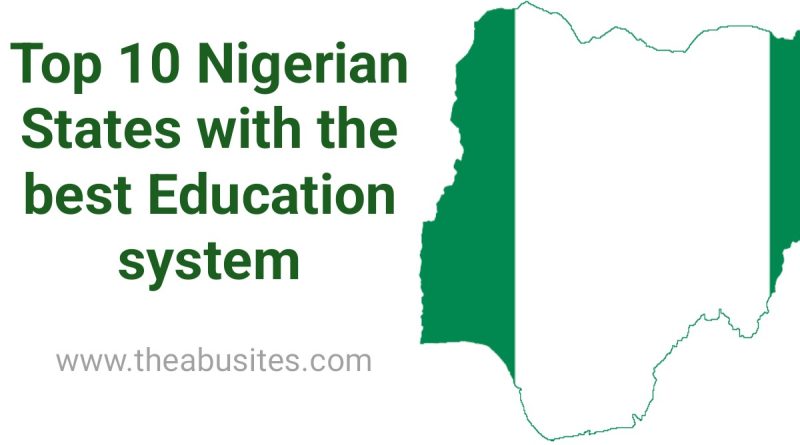

![ABU Zaria Courses 2024: Full List of 116 ABU Zaria Undergraduate Courses [Updated] 13 ABU Zaria Courses 2024: Full List of 116 ABU Zaria Undergraduate Courses [Updated] 3](https://www.theabusites.com/wp-content/uploads/2020/01/ABU-degree-courses.Jpg-130x90.jpg)

